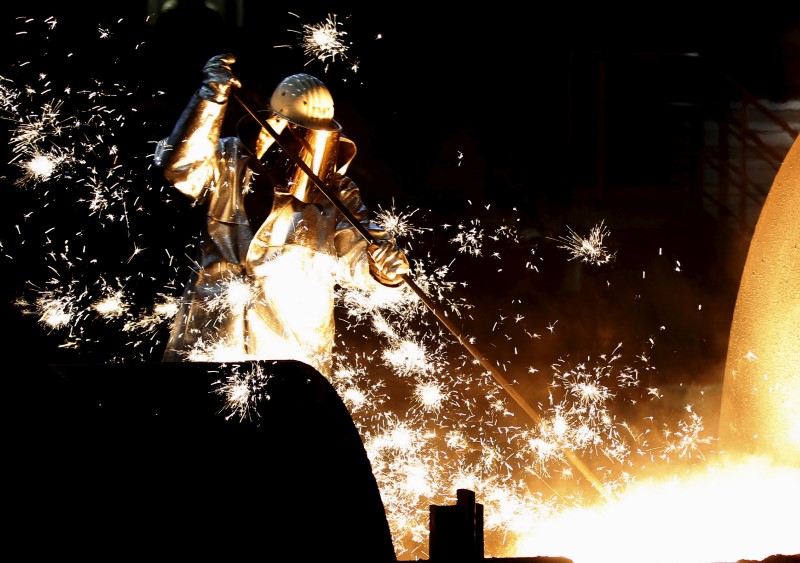By Jan Strupczewski
BRUSSELS (Reuters) - Euro zone industrial production was much weaker than expected in February, data showed on Thursday, pointing to slower economic growth in the first quarter and no quick policy tightening from the European Central Bank.
The European Union's statistics office Eurostat said industrial production in the 19 countries sharing the euro fell 0.8 percent month-on-month for a 2.9 percent year-on-year rise. Economists polled by Reuters had expected a 0.1 percent month-on-month increase and a 3.8 percent annual gain.
Eurostat also revised upwards its data for January to a 0.6 percent monthly decline from the previously reported -1.0 percent and to a 3.7 percent year-on-year rise from 2.7.
Industrial production accounts for some 20 percent of euro zone gross domestic product.
"Weak industrial production figures point to some growth deceleration in the first quarter. While there’s no reason to panic yet, it seems as if GDP growth is already past its peak," ING economist Peter Vanden Houte said.
The weaker February result was due to falling production in all categories - intermediate goods, capital goods, durable and non-durable consumer goods -- except energy, the output of which surged 6.8 percent on the month after a 1.1 percent monthly decline in January.
Year-on-year, energy production rose 5.7 percent in February after an 8.9 percent plunge in January, but all other components showed a smaller annual rise compared with the month before.
Average quarterly growth in the euro zone in 2017 was 0.6 percent, but first-quarter growth would be lower, said Nicola Nobile, the lead euro zone economist at Oxford Economics.
"This will not bode well for GDP growth, which we now expect only expanding by 0.4 percent in the first quarter, 0.2 percentage points lower than the average quarterly growth rates for 2017. The 0.7 growth rates of mid-2017 now seem a thing of the past," Nobile said.
The moderation in growth momentum is likely to keep euro zone inflation subdued and well below the European Central Bank's target of below, but close to 2 percent over the medium term. Inflation in March was 1.4 percent year-on-year.

"In these circumstances the ECB is unlikely to become more hawkish. We expect a first rate hike at the earliest in June 2019," ING's Vanden Houte said.